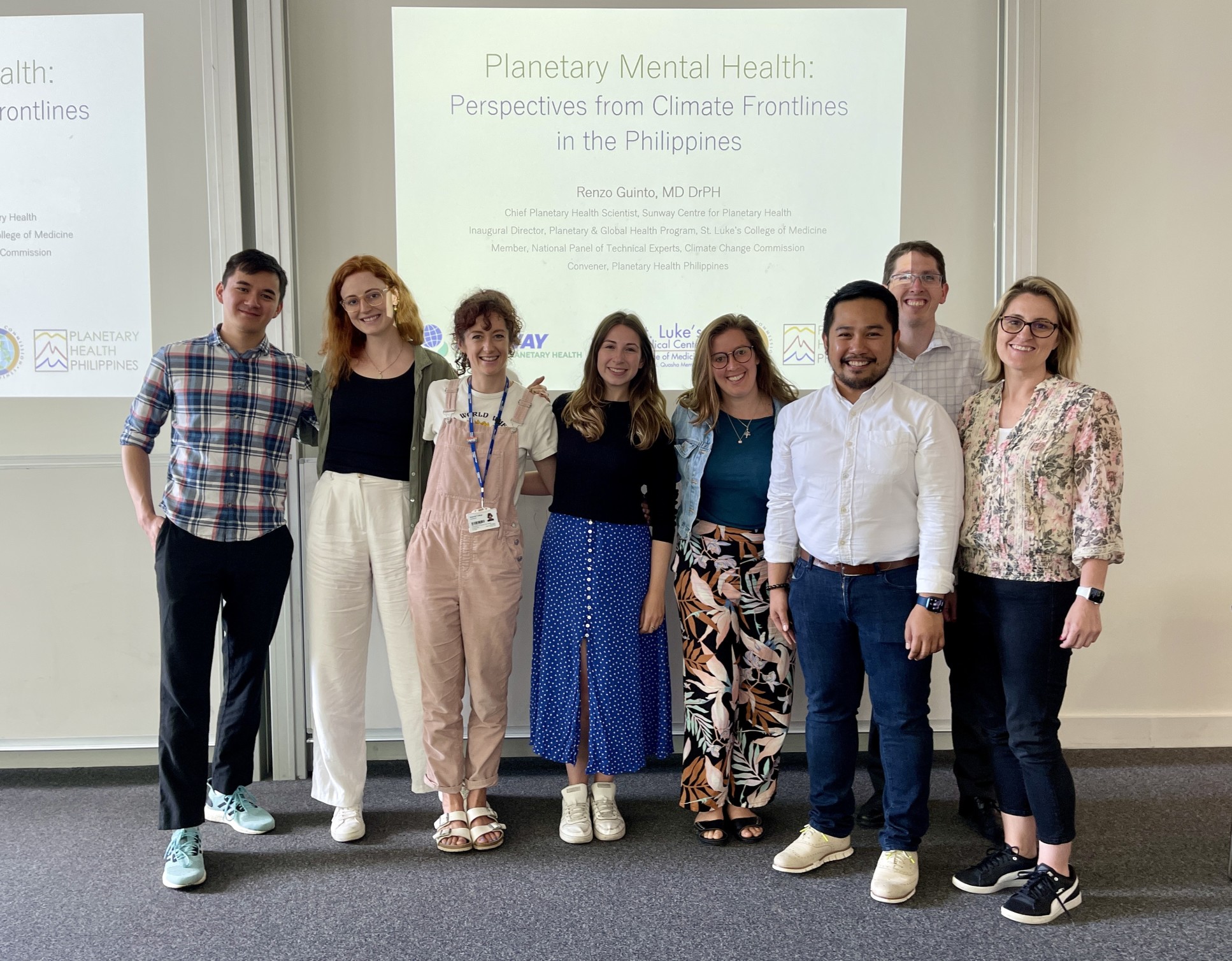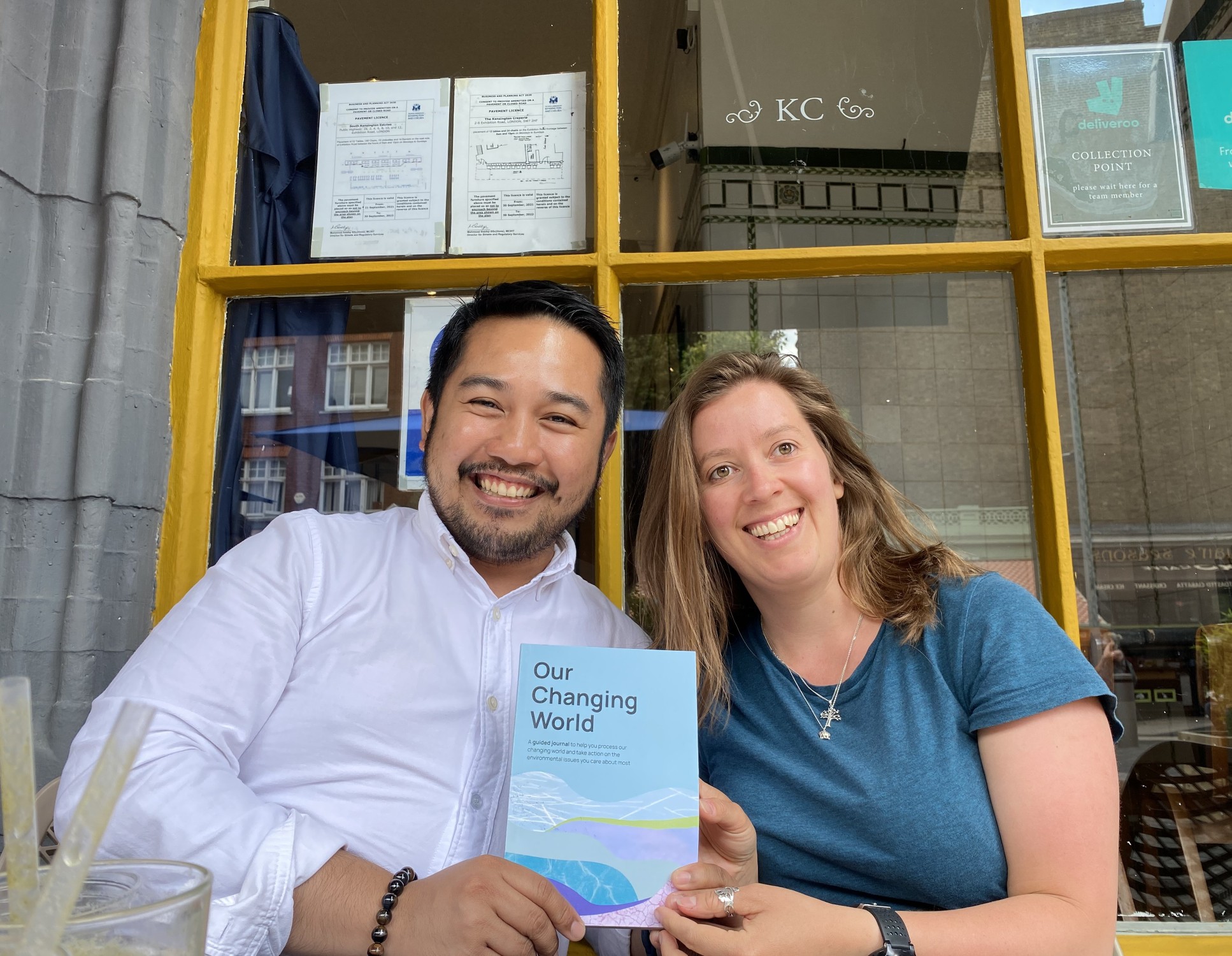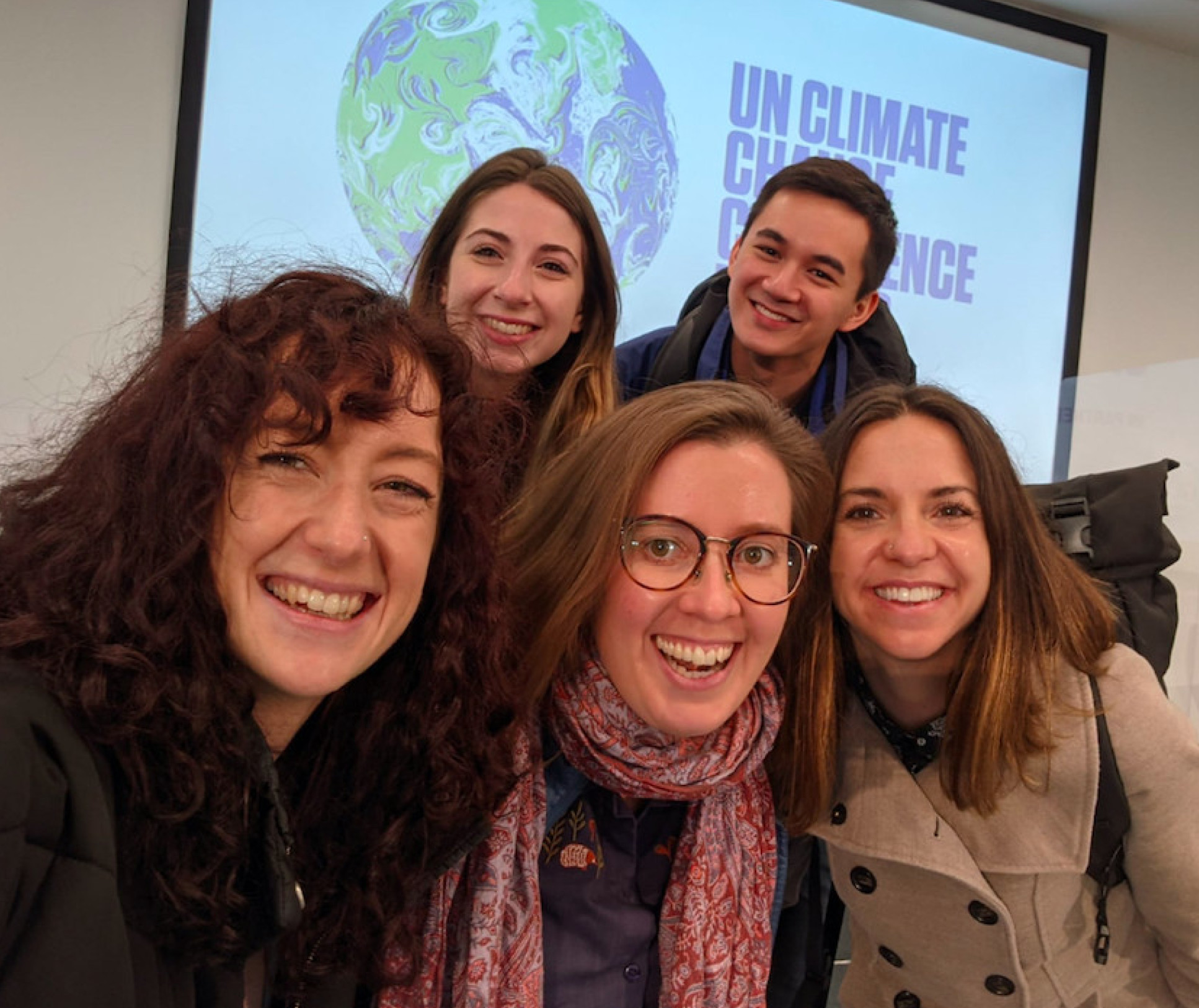Why inaction on climate change is bad for our mental health

Person walking in misty hills
We need to recognise that our mental wellbeing is intimately connected with the health of the planet, says Dr Emma Lawrance.
The gap between action needed on climate change, and action actually being taken by world leaders, is vast – and it’s causing huge distress for a growing number of people around the world.
Individuals and communities already dealing with the consequences of climate change, such as flooding, droughts, and wildfires, particularly in the Global South, are especially at risk of mental ill-health as a result.
Young people too, who see their futures hanging in the balance while the adults do little to protect it, are increasingly showing signs of eco-anxiety.
We spoke to Dr Emma Lawrance, Mental Health Innovations Fellow at the Institute of Global Health Innovation, to find out more.
What do you work on?
I lead Climate Cares, looking at the interconnection between climate change, mental health, and wellbeing – a topic that has been gaining more and more attention as people start to see the impacts on themselves and communities.
How is climate change impacting people’s mental health?
Our health is ultimately dependent on the social, political and environmental conditions in which we live. Our wellbeing depends on safe and secure food and water systems, societies and livelihoods, and fostering connections with ourselves, others and the non-human world.
Our research indicates mental health professionals are seeing more people with distress about this and the inaction of leaders. Generally, people say that if political will was mobilised for climate change, their anxieties would largely dissipate.
Destruction of ecosystems and climate has cascading and compounding negative impacts on all of these, and therefore our mental health and wellbeing is being worsened dramatically by the climate crisis.
Are some people more affected than others?

In general, people who have the highest eco-anxiety are those who have experienced climate threats themselves – groups and individuals more likely to already face social inequalities and injustices. A lack of action from leaders is understandably the source of a lot of distress and anger.
Having a sense of meaning in life, empathy for others and the world, and feeling a connection to nature are all good things for mental wellbeing. But in the context of the climate crisis it’s also people with these attributes who are feeling the most distress.
Denial and delay are also emotional reactions from people trying to defend themselves mentally by pretending climate change isn’t happening.
How is young people’s mental health impacted by climate change?
During 2020 we asked young people in the UK about their thoughts and feelings. While they reported that covid was having a bigger effect on their daily lives, it was the climate crisis that was a bigger source of worry and distress. They felt angry, guilty, and less like they knew what to do about it, and less like their actions would make a difference.
In research involving 10 countries, young people said they felt distressed and that the adults in power were betraying them by not acting with urgency. Dr Emma Lawrance
We really need leaders to act to bring about the changes that young people say are so essential to their wellbeing and future. In research involving 10 countries around the world, young people said they felt distressed and that the adults in power were betraying them by not acting with urgency.
How should we respond to this distress?
We need leaders to address the climate crisis as the urgent challenge and emergency it is. But we also need to support and fund communities to grapple with what’s going on and learn coping skills that will help them get through these challenges. There are many great initiatives emerging, but they need to be brought together and invested in.

What advice can you give to someone experiencing climate anxiety?
Know it’s a normal, understandable, healthy, adaptive response. It means that you care, have empathy, understand what is going on, and are willing to let down your defences and see the reality.
No matter where we are and how bad things get, there are always things we can save and push towards a better future. If it's affecting your life though, there are climate-aware mental health practitioners and supportive organisations that can help.
How do you feel about the future?
Things are really really bad, we’re losing a lot already, and leaders aren’t acting with urgency. But what gives me hope is that the radical and urgent system changes we need, strongly align with a system that better cares for people and their wellbeing. More individuals and communities are bravely rising up to share a vision for that better world.
What are you doing at COP27?
The Climate Cares team is speaking alongside the Department of Health and Social Care in the Health Pavilion on 9 November at 2pm: Climate action and psychology: Using psychological science and practice to promote individual and community health. Sessions can be watched live here.
On the 10 November, the cop2.org initiative, which Climate Cares is European Hub Lead of, is launching as a partner of the Race to Resilience. The launch is set to outline how the initiative will implement a roadmap to strengthen mental health and psychosocial support systems for those communities most vulnerable to climate change.

Article text (excluding photos or graphics) © Imperial College London.
Photos and graphics subject to third party copyright used with permission or © Imperial College London.
Reporter
Jez Fredenburgh
The Grantham Institute for Climate Change
